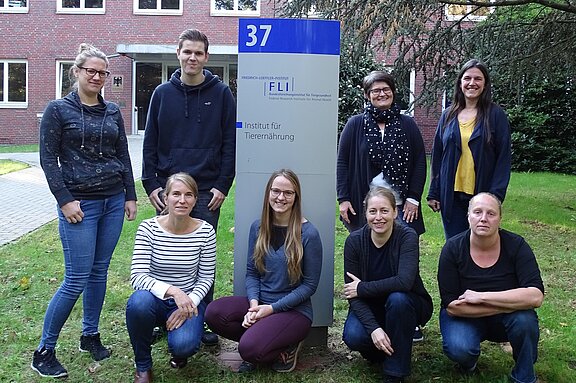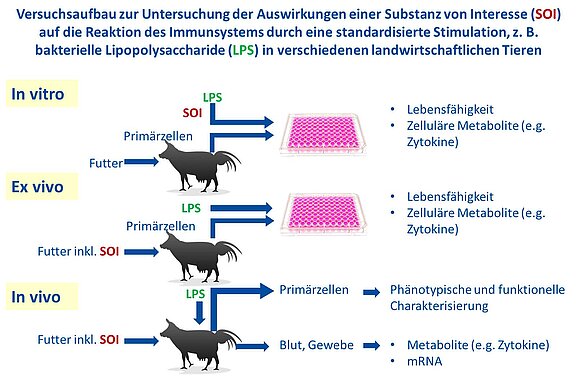
Almost every nutrient as well as undesirable substances in feed (e.g. mycotoxins) and secondary plant metabolites, may influence the immune system. On the other hand, immunomodulatory feed components may influence the host animal's immune responses against viral, bacterial, mycotic and parasitic pathogens. Therefore, the manifold interactions between nutrition and the immune system are subject of research in the interdisciplinary working group. Specific aspects are investigated across different livestock species.
The effects of substances of interest (SOI) are investigated on primary cells in vitro or tested in feeding experiments, whereby the influence on immune responses are determined ex vivo or in vivo.
The working group has a wide range of methods to characterize animal health in order to investigate the effects on the immune system of farm animals:
Hematology, e.g.:
- Erythrogram and leukogram (analyzer)
- Leukocyte differentiation with specific surface markers (flow cytometry)
- Preparation and differentiation of smears (microscopy)
Blood metabolites, e.g.:
- Clinical chemistry (analyzer)
- Electrolytes (ion-selective electrodes)
- Cytokines (ELISA)
- Immunglobulines (ELISA)
- Anti-oxidative system (enzyme assays)
Functionality of cells, e.g.:
- Proliferation (cell culture)
- Phagocytosis (flow cytometry)
- Apoptosis (flow cytometry)
- Intracellular oxygen species production (flow cytometry)
- Mitochondrial respiration & glycolysis (Seahorse system)
Molecular biology, e.g.:
- Transcriptome analysis in different cells and tissues (quantitative real-time PCR, microarray and NGS evaluation)
Toxicity, e.g.:
- Comet assay (electrophoresis, fluorescence microscopy)
- Micronucleus assay (cell culture, fluorescence microscopy)
- Cytotoxicity (Alamar blue, Neutralred, MTT)


